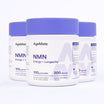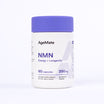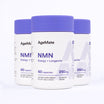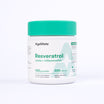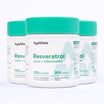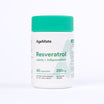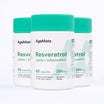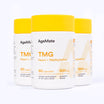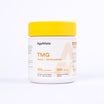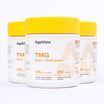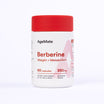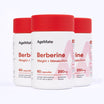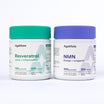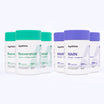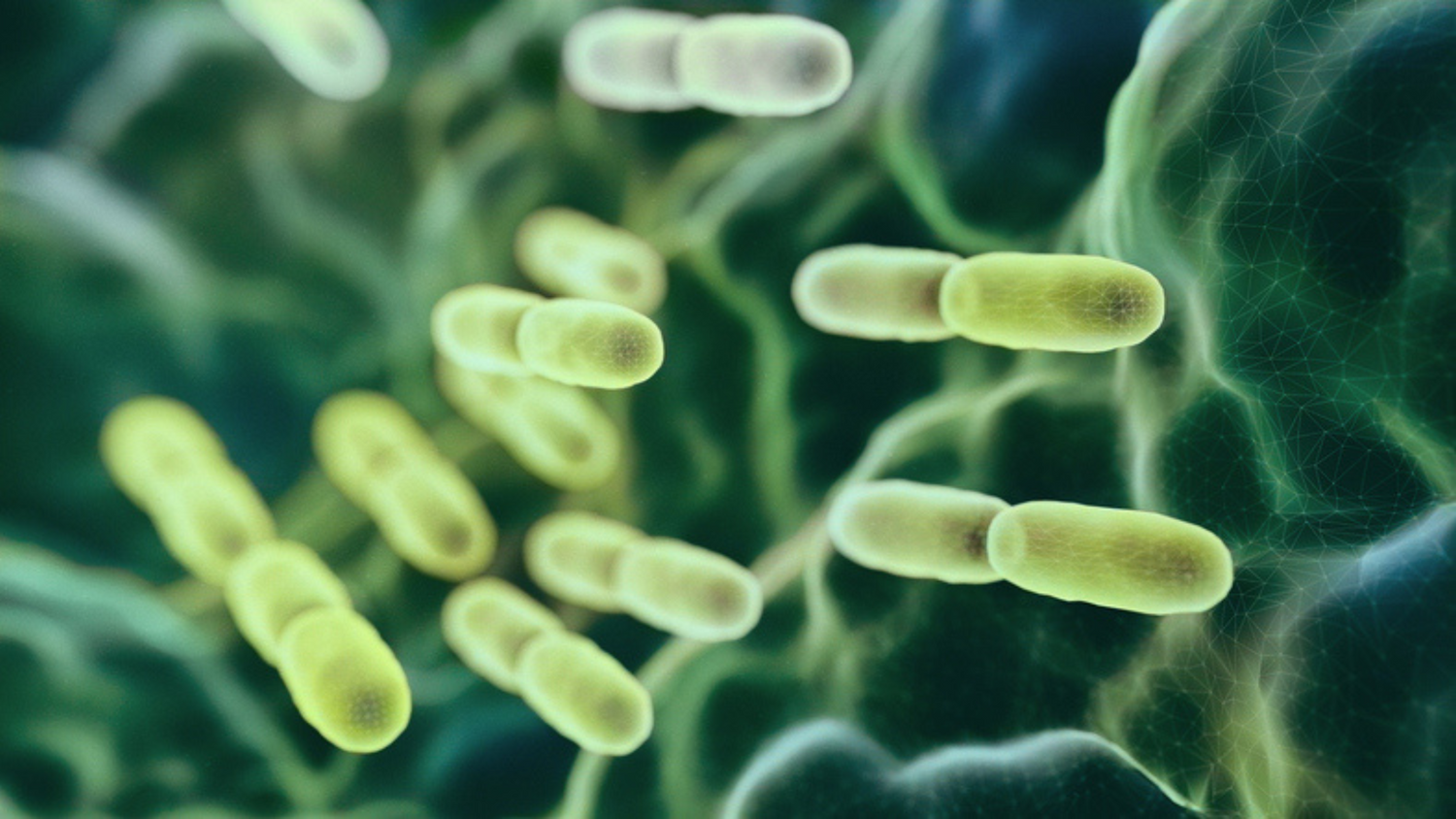Maintaining a healthy gut becomes increasingly crucial for overall well-being as we age. The gut microbiome, a complex community of trillions of microorganisms living in our digestive tract, plays a vital role in digestion, immune function, and mental health.
In this guide, we'll explore how to nurture a thriving gut microbiome through dietary patterns and other practices to promote healthy ageing (R).
What is the Gut Microbiome?
The gut microbiome contains many bacteria, viruses, fungi, and other microorganisms. These microbes help digest food, produce essential nutrients, and protect against harmful pathogens. A balanced gut microbiome is key to optimal health, influencing everything from our immune response to our mood (R).
What Happens to Your Gut Microbiome as You Age?
As we age, the composition of our gut microbiome changes. Factors such as diet, medication use, decreased mobility, and a weakened immune system can lead to a decline in microbial diversity and an increase in harmful bacteria. These changes can contribute to digestive issues, inflammation, and a higher risk of chronic diseases (R). Some bacterial changes in the gut include:
- Reduction in Beneficial Bacteria: The population of beneficial bacteria, such as Bifidobacteria and Lactobacilli, tends to decrease with age (R).
- Increase in Harmful Bacteria: Conversely, there can be an increase in harmful bacteria like Clostridium difficile and certain pathogenic Enterobacteriaceae (R).
Adopting a healthy lifestyle and dietary habits can help mitigate these changes and support gut health throughout the aging process.
5 Quick Tips for a Healthy Gut Microbiome
To support a healthy gut microbiome, consider the following tips:
- Eat a Diverse Diet: Consuming a wide variety of foods ensures a range of nutrients and promotes microbial diversity.
- Stay Hydrated: Adequate hydration supports digestion and helps maintain a healthy gut lining.
- Limit Antibiotics: Use antibiotics only when necessary, as they can disrupt the balance of gut bacteria.
- Exercise Regularly: Physical activity can positively influence the composition of the gut microbiome.
- Manage Stress: Chronic stress can negatively impact gut health, so incorporating stress-reducing activities is beneficial.
Keep it simple; to start, make small changes and then dive deeper into those larger changes through diet, food and supplement choices.
What’s Best? Diets, Foods and Supplements
Best Diets for Gut Health
Certain dietary patterns are particularly effective in promoting gut health:
Plant-Based Diets: Vegetarian and vegan diets, rich in fibres and polyphenols, increase the abundance of beneficial bacteria such as Bifidobacterium and Lactobacillus while reducing harmful bacteria. This dietary pattern supports a diverse and stable gut microbiome (R).
Mediterranean Diet: The Mediterranean diet, which includes high consumption of vegetables, fruits, whole grains, nuts, and olive oil, positively modulates the gut microbiota, increases microbial diversity, and is linked to reduced gut permeability and inflammation (R).
Low-FODMAP Diet: For those with irritable bowel syndrome (IBS), a low-FODMAP diet can reduce symptoms by minimising fermentable carbohydrates that cause discomfort (R).
Best Foods for Gut Health
Incorporate these gut-friendly foods into your diet:
Probiotics and Prebiotics: Functional foods containing probiotics (beneficial bacteria) and prebiotics (non-digestible fibres feeding these bacteria) have enhanced gut health. These include fermented foods like yogurt and kefir and fibre-rich foods like inulin-rich vegetables (R).
Dietary Fibre: Fibre from various sources, including vegetables and legumes, promotes the growth of beneficial gut bacteria and the production of short-chain fatty acids (SCFAs), which are essential for gut health. High fibre intake is associated with increased microbial diversity and better gut health (R, R)
Whole Grains: Consumption of whole grains, such as whole-grain wheat and rye, has been shown to improve gut health by increasing fecal butyrate concentrations and improving gastrointestinal symptoms compared to refined wheat (R).
Anti-Inflammatory Foods: Foods like fatty fish, leafy greens, nuts, and seeds contain anti-inflammatory compounds that help maintain gut health. Avoid inflammatory foods such as processed meats, refined sugars, and trans fats (R).
Best Supplements for Gut Health
Consider these supplements to support a healthy gut:
Probiotics: Supplements containing live beneficial bacteria can help restore and maintain a balanced microbiome. Some notable strains include:
Lactobacillus and Bifidobacterium strains:
- These strains are commonly found in probiotic supplements and have been shown to improve gut health by enhancing the balance of gut microbiota, reducing harmful bacteria, and increasing beneficial bacteria (R).
- Lactobacillus plantarum and Bifidobacterium longum are particularly noted for their ability to improve gut barrier function and reduce inflammation (R).
Multi-Strain Probiotics:
- Supplements containing multiple strains of probiotics have shown greater efficacy in improving gastrointestinal symptoms and maintaining gut health. These include combinations of Lactobacillus and Bifidobacterium species (R).
Prebiotics: Inulin, FOS, GOS, lactulose, arabinoxylans, pectin, beta-glucans, and HMOs are among the best prebiotic supplements for promoting gut health. These prebiotics selectively stimulate the growth of beneficial gut bacteria, contributing to improved gut function and overall health. These supplements provide food for probiotics, enhancing their effectiveness (R, R).
Digestive Enzymes: Pancreatic enzymes, bromelain, papain, multi-enzyme complexes, lactase, xylanase, and protease are among the best digestive enzyme supplements for supporting gut health. These supplements aid in the breakdown and absorption of nutrients, enhance digestive function, and support a healthy gut microbiota (R).

What About Synbiotics and Postbiotics?
Synbiotics, a powerful combination of prebiotics and probiotics, work synergistically to enhance gut health, offering a dual approach to nurturing beneficial gut bacteria. Found in certain fortified foods and dietary supplements, synbiotics are becoming an essential component of a balanced diet (R).
On the other hand, postbiotics, the beneficial by-products of probiotic bacteria, such as short-chain fatty acids, are emerging as promising contributors to gut health. While research on postbiotics is still in its early stages, their potential benefits are gaining attention in digestive wellness (R).
Gerobiotics: Probiotics for Ageing
Gerobiotics are a specific type of probiotic designed to address the needs of the ageing gut microbiome. They aim to restore microbial diversity and improve digestive health in older adults.
Gerobiotics have been shown to promote healthy longevity in model organisms like Caenorhabditis elegans. In one study, researchers identified two specific combinations of probiotic bacteria that significantly extended the lifespan of these nematodes.
These combinations, referred to as cocktail 55 and cocktail 112, included strains such as Bacillus licheniformis, Lactobacillus delbrueckii subsp. bulgaricus, Lactobacillus amylovorus, and others. These gerobiotic cocktails were found to work through different signalling pathways to enhance longevity and improve healthspan markers, highlighting their potential benefits for aging interventions (R).
In Summary: How to Improve Gut Health?
- Maintain a balanced diet rich in fibre and fermented foods.
- Stay hydrated and exercise regularly.
- Consider taking probiotic and prebiotic supplements.
- Avoid excessive use of antibiotics and manage stress effectively.
Conclusion
A healthy gut is fundamental to overall health and longevity, especially as we age. By adopting a gut-friendly diet and lifestyle, you can support your microbiome and promote healthy ageing. For more insights on how the gut microbiome impacts ageing and longevity, check out our related article: Exploring the Gut Microbiome: Its Impact on Ageing and Longevity.



